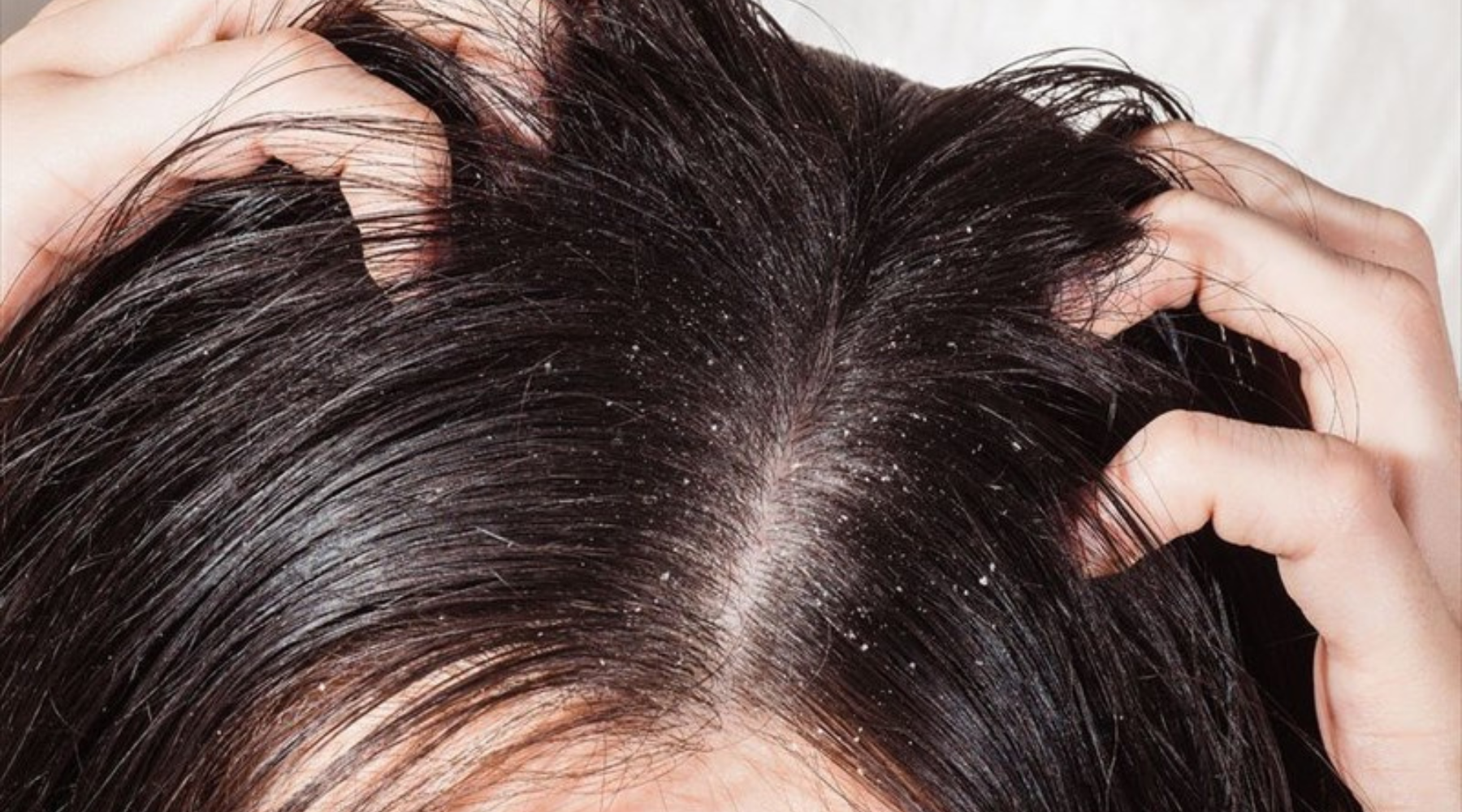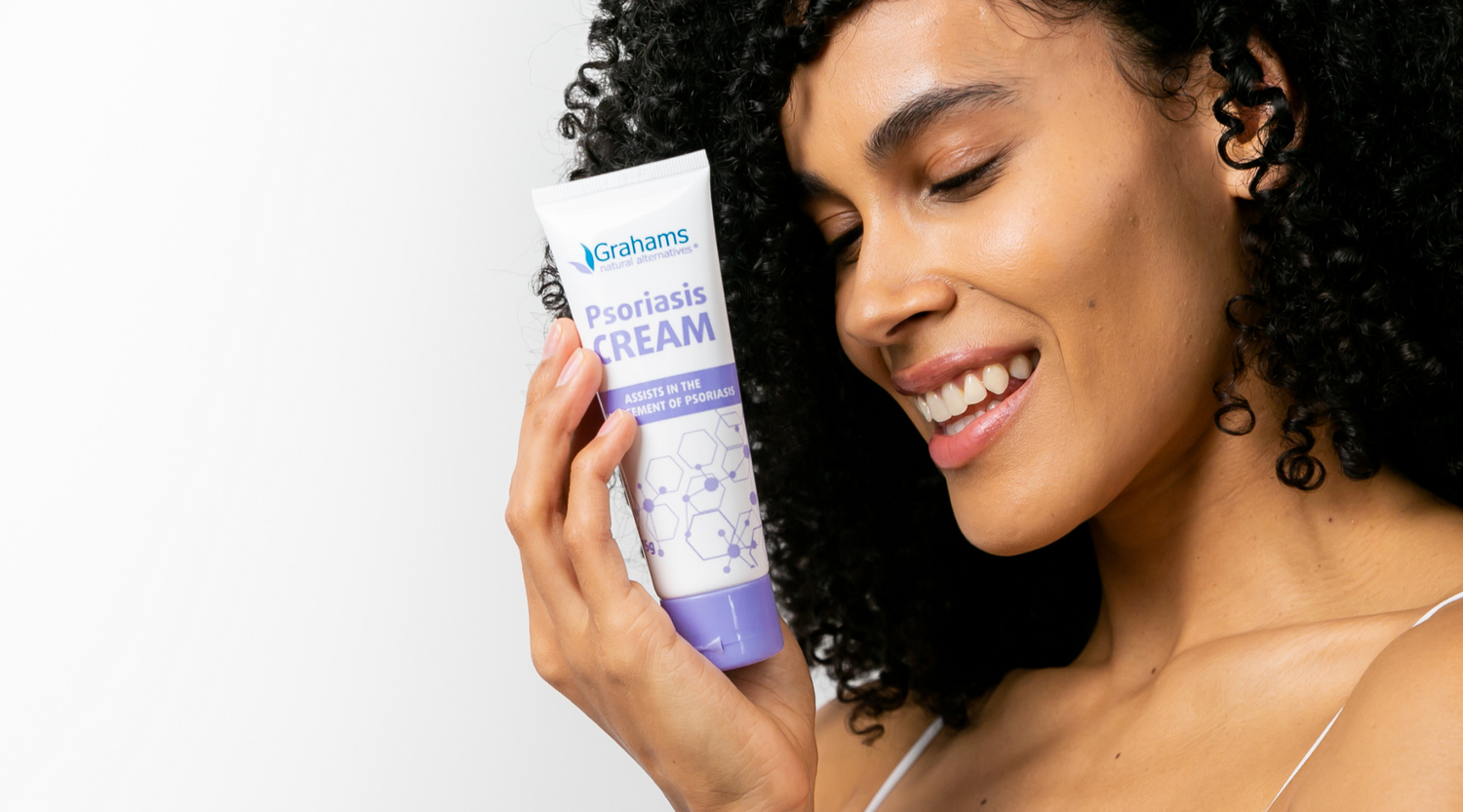Dealing with an itchy, flaky scalp can be both frustrating and uncomfortable. However, pinpointing whether you have seborrheic dermatitis or dandruff is crucial for effective treatment. While these conditions share similarities, they have distinct characteristics and underlying causes. In this blog post, we will explore the differences between seborrheic dermatitis and dandruff, discuss how to determine which one you have, and delve into the benefits of using Graham's Natural Products for effective treatment.
Understanding Seborrheic Dermatitis
Seborrheic dermatitis is a chronic inflammatory skin condition that primarily affects areas rich in oil glands, such as the scalp, face, and chest. It is characterized by red, scaly patches accompanied by persistent itching, flaking, and sometimes soreness. Seborrheic dermatitis is commonly associated with conditions like Parkinson's disease, HIV/AIDS, and autoimmune disorders. The exact cause of seborrheic dermatitis remains unclear, but there are several factors that are believed to contribute to its development. These include:
-
Hormonal Imbalances: Changes in hormone levels, particularly during puberty, pregnancy and menopause can contribute to the development of seborrheic dermatitis. Hormonal fluctuations can affect oil production and the balance of the skin's microbiome, leading to flare-ups.
-
Genetic Predisposition: There is evidence to suggest that seborrheic dermatitis may have a genetic component. If you have a family history of the condition, you may be more susceptible to developing it.
-
Malassezia Yeast Overgrowth: The yeast called Malassezia, which naturally resides on the skin, can multiply excessively, leading to seborrheic dermatitis. Malassezia feeds on the oils produced by the scalp, and its overgrowth can trigger an inflammatory response in susceptible individuals.
-
Neurological Conditions: Seborrheic dermatitis is commonly associated with neurological conditions such as Parkinson's disease. The exact relationship between these conditions is not fully understood, but it is believed that changes in the nervous system can influence the development and severity of seborrheic dermatitis.
-
Stress: Emotional or physical stress can trigger or exacerbate seborrheic dermatitis symptoms. Stress management techniques can help reduce the frequency and severity of flare-ups.
-
Weather conditions: Cold, dry weather or changes in seasons can impact the skin's moisture levels and contribute to seborrheic dermatitis. Protecting the skin and maintaining proper hydration is important during these times.
-
Certain medications: Some medications, such as those containing psoralen, interferon, or lithium have been associated with triggering or worsening seborrheic dermatitis in some individuals. If you suspect a medication is contributing to your symptoms, consult with your healthcare provider.
-
Irritating skincare products: Harsh detergents, solvents, chemicals, and soaps can disrupt the skin's natural balance and trigger seborrheic dermatitis. Using gentle, non-irritating products can help minimize flare-ups.
Understanding Dandruff
Dandruff, on the other hand, is a common scalp disorder characterized by white or yellow flakes of dead skin that appear on the scalp and often fall onto clothing. Although dandruff is typically harmless, it can be embarrassing and cause self-esteem issues. It is primarily caused by the following factors:
-
Malassezia Yeast Overgrowth: Similar to seborrheic dermatitis, dandruff is primarily caused by the overgrowth of Malassezia yeast on the scalp. The yeast metabolizes the natural oils produced by the scalp, leading to increased cell turnover and the formation of visible flakes.
-
Dry Skin: Individuals with dry skin are more prone to developing dandruff. Dryness can lead to an impaired skin barrier, allowing the yeast to flourish and cause flaking.
-
Poor Scalp Hygiene: Infrequent washing or inadequate removal of oil, dirt and dead skin cells from the scalp can contribute to the buildup of sebum and flakes, worsening dandruff symptoms.
-
Sensitivity to Hair Care Products: Some individuals may be sensitive to certain ingredients commonly found in hair care products, such as sulfates or fragrances. These sensitivities can irritate the scalp and exacerbate dandruff symptoms.
Differentiating Between Seborrheic Dermatitis & Dandruff
It can be challenging to differentiate between seborrheic dermatitis and dandruff due to their similar symptoms. However, there are a few key factors to consider:
-
Severity: Seborrheic dermatitis tends to be more severe, with symptoms extending beyond the scalp to other areas rich in oil glands. Dandruff, on the other hand, is milder and localized to the scalp.
-
Inflammation: Seborrheic dermatitis causes red, inflamed patches, while dandruff is characterized mainly by flaky skin without significant redness or inflammation.
-
Itching: Seborrheic dermatitis often leads to intense itching, which may not be as pronounced in dandruff cases.
-
Scalp Appearance: Seborrheic dermatitis can result in greasy or oily scalp patches, while dandruff typically presents with dry, flaky skin.
Determining the Condition and Treatment Options
To determine whether you have seborrheic dermatitis or dandruff, it is recommended to consult a dermatologist or healthcare professional. They can perform a thorough examination of your scalp and take into account your medical history and symptoms to provide an accurate diagnosis.
If you are diagnosed with seborrheic dermatitis or dandruff, Graham's Natural Products offer effective treatment options:
-
Graham's Natural Scalp Relief Shampoo: Formulated with key ingredients including Colloidal Oatmeal, Niacinamide, Allantoin, Green Tea extract and Piroctone Olamine, this shampoo aims to protect and nourish the scalp. It works by reducing the dirt and build-up, cleansing the scalp and hydrating the hair, in order to reduce the overall appearance of flaking/dry scalp, whilst also reducing the symptoms associated with it. Regular use of this shampoo can help control symptoms and promote a healthier scalp.
-
Graham's Natural Scalp Relief Cream: Scientifically formulated to relieve dry, itchy and flaky scalps. Whilst designed to improve scalp health, the cream also moisturises, soothes and provides relief for itchiness associated with dry/irritated scalps. The Scalp Relief Cream is formulated with Manuka Honey to soothe, Calendula to calm irritation and Jojoba Seed Oil to cool and soothe. The cream is formulated with calming emollient ingredients designed for soothing topical application where the epidermis is susceptible to or has been affected by inflammation.
Seborrheic dermatitis and dandruff can cause discomfort and impact our confidence, but understanding their underlying factors is key to effective management. Factors such as hormonal imbalances, genetic predisposition, Malassezia yeast overgrowth, dry skin, poor scalp hygiene, and sensitivity to hair care products can contribute to the development and severity of these conditions. By recognising these factors and seeking professional guidance, you can tailor your treatment approach accordingly. Incorporating natural and therapeutic solutions like Graham's Natural Products, such as the Scalp Relief Shampoo & Scalp Relief Cream, can help address symptoms and promote a healthier scalp. With proper care and treatment, you can find relief and regain scalp health and confidence.






